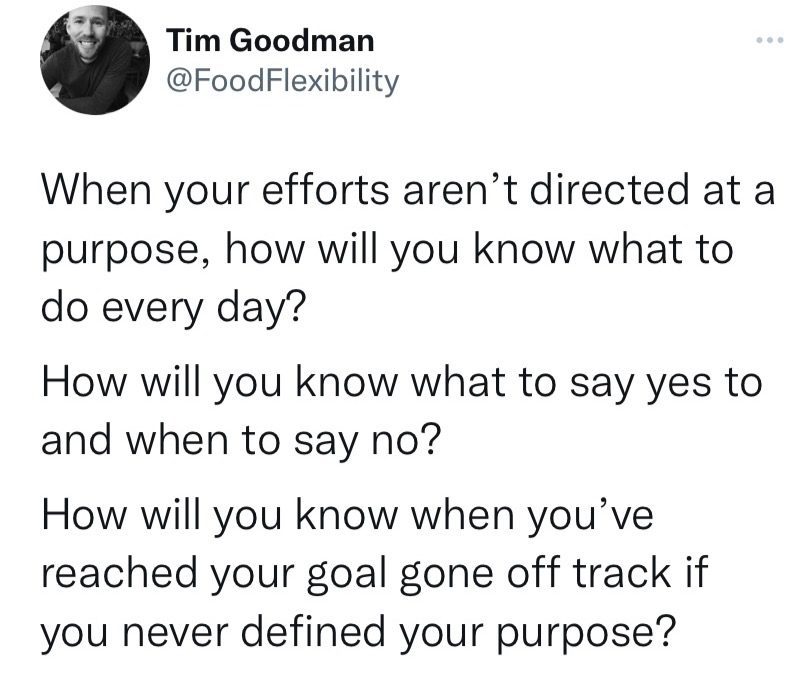We’ve all been there; you head out for a ‘quiet one’ and end up bullied into Jägerbombs at 1am.
As your mother probably told you, nothing good happens after midnight!
So, what’s the magic bullet that makes handling peer pressure easier?
Before you can handle peer pressure it helps to understand why peer pressure works.
It’s them, not you:
To explain that a bit further I’m going to talk about “crab theory”, something I discovered reading Sam Forget’s blog.
If you trap a bunch of crabs in a bucket, they literally pull down anyone trying to escape. The collective mindset is ‘if I can’t escape, neither can you’.
This is an evolved survival instinct. Helpful when we lived in caves, where safety in numbers was essential and threatening people trying to leave the ‘tribe’ with a club was the best tool for the job.
Today it helps nobody!
Your friends and family don’t want you to leave the comfort of the ‘tribe’. When you begin to ‘escape’, by making sacrifices they wish they could also make, they start to say things like
-
“You’re looking a bit too skinny, you should eat”
-
“Come on, live a little. It’s Dave’s birthday!” [the problem is you only met Dave 5 minutes ago…]
-
“It’s only one beer you [insert passive aggressive ‘banter’]
-
“Come on, it’s only a [insert beige ‘party’ food that tastes of cardboard]”
-
“You’re not as fun as you used to be” [ouch!]
‘Crab theory’ tells us that these comments stem from their insecurity about you leaving them behind, not yours.
They won’t change, so you must:
Trying to change someone’s mind is generally a waste of time. Whilst you can’t control how someone behaves, you can control how you respond.
But we need a strategy, otherwise we’ll just cave in. We don’t enjoy people being on our back and we don’t like upsetting the ‘tribe’, even if we need to escape!
Tough love coaching moment:
You need to be unique to become remarkable. Most people don’t give a shit about their health until something bad happens. Following the herd is doing nothing to help you achieve your goal. Find a tribe that supports you rather than one that drags you down.
Handling peer pressure:
Step #1: Passive deflection
This might be a familiar example, you’re in a bar with your family and your brother-in-law insists you try his cheesy chips.
“No thanks mate” you reply.
To which he says, “Oh, I forgot, you’re healthy now aren’t you!”
This is his insecurity surfacing; he’s subconsciously trying to drag you down to his level.
Make sure this is his only free shot.
You don’t ‘owe it to him’ to try his chips, he didn’t even make them himself!
Some options for Passive Deflection:
-
Wink at him and smile, then change the subject [bonus points if you make awkward eye contact]
-
Skip past it with a “yeah, you caught me” and change the subject
-
Raise an eyebrow and change the subject
-
Laugh, smile, and change the subject
Notice none of the options give explanation. You don’t need to explain yourself, your goals, or your diet. Don’t give him further opportunity to continue the conversation.
Step #2: Active deflection
OK, so your brother-in-law won’t let it go, Passive deflection hasn’t helped to change the subject…
“Surely a few chips won’t hurt mate, live a little…”
Time to get more direct. Active deflection addresses his comment just enough to stop him looking like a nob, but not so much that you roll over and let him win:
-
I eat whatever I want. It works both ways, today I don’t want chips
-
I don’t fancy chips tonight, I had them yesterday
-
I’m not actually that hungry, is that OK?
-
I’m saving my appetite for [whatever epic meal you’ve picked that he’ll be jealous of as soon as it arrives]
-
Peer pressure doesn’t work on me mate [favourite line of my great buddy Chris]
Just like step 1, change the subject as soon as you respond. This makes it clear the conversation is over without making it a big deal and embarrassing your brother-in-law.
Step #3: Make it uncomfortable
Hopefully it doesn’t have to get to this stage, but the following is quite common, especially if we swap cheesy chips for alcohol…
✕ They order it for you anyway
✕ They put food you don’t want on your plate [which is just rude!]
✕ They say “I’ve bought it now, you’ve got to drink it” [that wasn’t the law last time I checked pal…]
✕ They explain how your ‘diet’ is wrong and what you should do instead
✕ They start with the ‘banter’ “you used to be cool”, “enjoy your rabbit food” etc.. [these are thinly disguised insults. Again, rude!]
Remember!
The way people treat you isn’t your fault—but it is your responsibility to respond appropriately. If you don’t stand up for yourself, nobody else will:
-
“Sorry, I’m not interested in what you think about my meal”
-
“You’re welcome to eat what you like and so am I”
-
“I don’t appreciate you discussing my food choices, please could you stop”
-
“Change the subject mate…”
-
“Would you like some of my salad?” [that’s quite passive-aggressive but he’s the one who won’t let it go]
Yes, it’s going to be uncomfortable for them. They may even consider your approach rude. You gave them two chances so it’s their turn to feel the heat, nobody should tolerate bullying.
Step #4: A quiet word
By now you’d hope he’d have got the message, but some people just can’t let these things go. If the first three steps don’t work, then it might be time for a private conversation.
Let the dust settle for a day or two and then take the brother-in-law aside, or give him a call:
“Mate, I’d like to talk to you about something. I’m working on improving my [inswert goal – health/strength/starting for the 1st team/have a competition coming up/ etc.*}, and giving me a hard time like you did the other night isn’t helping.
I know you mean well but I feel this is what’s best for me right now… It’d be great if I had your support the next time that we’re all out together”
*You don’t owe it to anyone to explain the specifics. If they are genuinely interested, explain. But remember, it’s your life not theirs.
Highlighting a good character trait (supportiveness) and asking for help gives him a confidence boost whilst appealing to his natural human desire to help. That subtle flattery often gets people to buy in. Sometimes they’ll even flip from being your fiercest critic to your most staunch supporter overnight.
Obstacles you might face
I’m not going to pretend that resisting peer pressure is plain sailing. You might find a few barriers along the way…
Obstacle #1: Being afraid to speak out
I’m an introvert by nature, I like to fit in. None of us like hurting people’s feelings.
Other people’s insecurities are not your problem though. If you fail to nip things in the bud now, by speaking up, you’ll just have the same battle the next time.
Maybe you can’t face speaking out, text them instead. You can even be proactive and text them beforehand to ask for support…
“Hey mate, can I just ask a favour before we head out tonight? I’m making some changes to support my health/sport/other goal so I’m not going to be [boozing/eating junk/etc.] tonight. You always keep an eye out for me so can you just give me a bit of help when the [booze/junk food] comes out later and everyone starts up with the usual healthy eating banter?”
If you received that message, what would you do?
Exactly….
Obstacle #2: Aggression
This happens a lot around booze.
People in the UK get really shitty if you suddenly don’t want to be part of the ‘fun’. They’re just worried you don’t value their ‘tribe’ any more.
If you’ve explained why you’re changing things up and people behave aggressively that’s their problem, not yours.
If it’s a close friend, repeat Step #4. Just remember, it’s very difficult to change the mind of people who are unwilling.
Personal anecdote:
A few years back I was struggling with a health issue and needed to go tee total for a month. I was terrified I’d lose my friends because, if I stopped drinking, they’d think I was boring.
Friends I’d had for over a decade, people I’d been through everything with.
I shared my concern to my friend Jess, and this was her response…
“Tim, that’s quite possibly the stupidest thing you have ever said”
Two things happened when I spoke to Jess:
-
I got some perspective
-
I shared the reason I needed to stop. If your friends can’t support you when it matters, it may be time to ditch them…
Obstacle #3: Your approach is too strict
If all it takes to overdo it is for someone to even mention ice cream, then maybe the issue is you. Or at least your approach to food.
Cutting out entire food groups is a short cut to disordered eating. As soon as you put certain foods off limits, you just want them more.
Splurges are not a failure of discipline, they’re a sign you’re depriving yourself.
I encourage all my clients to eat their favourite foods often. What happens is eventually those clients take these ‘special’ foods off the imaginary pedestal they’ve put them on, and they start treating them just like any other food.
Often people ask me how I can stop after two squares of chocolate. Simple, I have chocolate whenever I like so I’m never waiting for the next chance to indulge.
It didn’t used to be like that, but I fixed it by eating a nourishing diet 80% of the time and eating whatever the hell like the other 20%. If you struggle with that then spend some time getting clear on why you want to eat better in the first place:


Thought not…
This non-restrictive approach works quite well too:

Want to know how to unlock your own #FoodFlexibility? Book a free, no obligation call here and I’ll start to help you navigate your personal obstacles (like peer pressure).
OK, lots to take in there but here’s a summary of how to effectively handle peer pressure:
1) Passively Deflect 2) Actively Deflect 3) Make it uncomfortable 4) Have a private conversation
Do this and you’ll there will be fewer ‘crabs’ keeping you in that pesky, gains draining bucket.
If you do give it a try, I’d love to hear how it goes in the comments below (or drop me an email)
This blog was inspired by Sam Forget.
You can learn more about ‘crab theory’ here:
https://www.psychologytoday.com/us/blog/your-neurochemical-self/201903/when-others-hold-you-back



